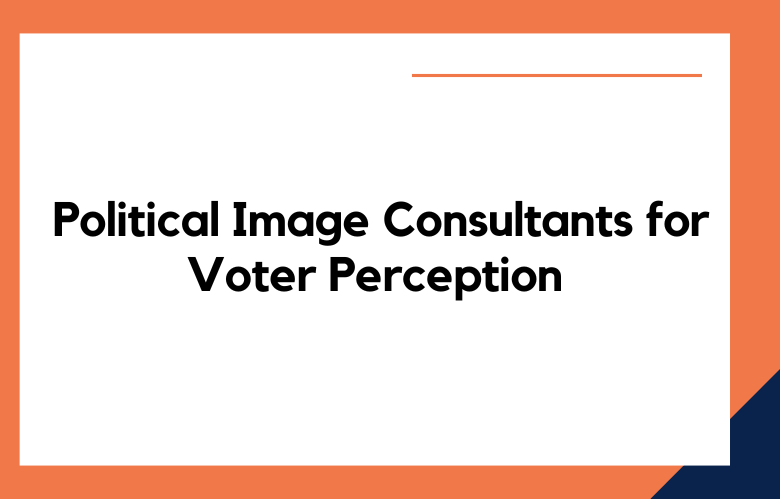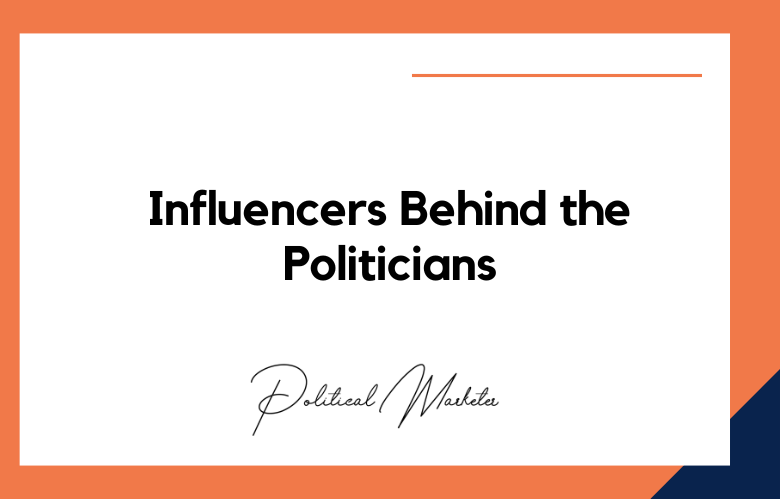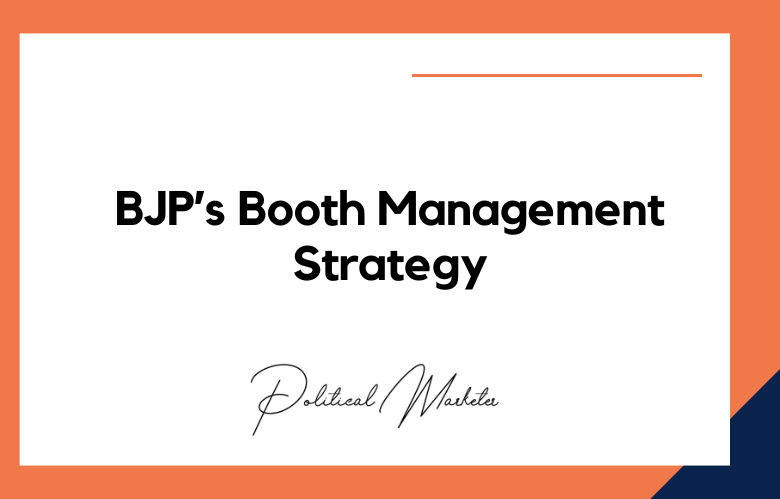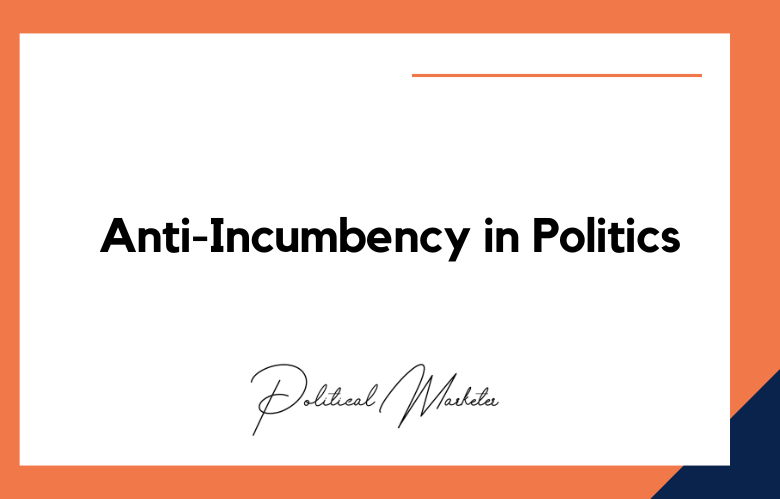Political image consultants play a crucial role in shaping how voters perceive candidates, using a blend of media savvy, psychological insight, and strategic communication. Their work is pivotal in modern political campaigns where public image can significantly impact a candidate’s success. This discussion explores the various techniques and strategies employed by these consultants to mold public perception and influence the political landscape.
How Political Image Consultants Influence Voter Perception: Shaping Politics
Political image consultants wield significant influence in shaping voter perception, thereby playing a pivotal role in the modern political landscape. Here’s how they exert their impact:
Crafting a Compelling Narrative
Image consultants work closely with candidates to develop a compelling narrative that resonates with voters. By highlighting a candidate’s strengths, values, and vision for the future, consultants help create an emotional connection with the electorate, shaping their perception of the candidate.
Managing Visual Representation
Image consultants meticulously manage a candidate’s visual representation, including wardrobe choices, grooming, and body language. By presenting a polished and professional image, consultants aim to convey confidence, credibility, and relatability, influencing voter perception positively.
Navigating Media Interactions
Consultants provide candidates with media training to effectively navigate interviews, debates, and press conferences. By coaching candidates on messaging, tone, and demeanor, consultants help ensure that their interactions with the media reinforce their desired image and resonate with voters.
Mitigating Reputational Damage
In the event of negative publicity or controversy, image consultants play a crucial role in crisis management. By developing strategic responses and damage control strategies, consultants help candidates mitigate reputational damage and maintain voter trust.
Harnessing Social Media
Image consultants leverage social media platforms to engage with voters directly and shape public discourse. By crafting compelling content and managing online presence, consultants help candidates connect with voters, mobilize supporters, and influence public opinion.
Developing Branding and Messaging Strategies
Consultants work with campaign teams to develop cohesive branding and messaging strategies that resonate with voters. By aligning campaign messaging with voter priorities and values, consultants help candidates differentiate themselves from opponents and gain a competitive edge.
- Key Takeaways
- Evolution of Political Consulting
- Role of Image Consultants in Campaigns
- Crafting a Winning Political Image
- Strategies for Shaping Voter Perception
- Influence on Voter Attitudes and Behaviors
- Beyond Surface: Deep Impact on Public Perception
- Ethics of Manipulating Voter Perception
- The Future of Political Consulting
- Summary
- Frequently Asked Questions
- How have image consultants impacted political campaigns over time?
- What are the key strategies used by image consultants to influence voter perception?
- Why is it important for political figures to have a positive public image?
- How do image consultants navigate the ethical considerations of manipulating voter perception?
- What does the future hold for the field of political consulting with regard to voter perception?
Ever wondered how political image consultants sway voter opinions? Dive into a world where perception is reality. Discover the art of shaping public figures’ images to influence your vote. Uncover the secrets behind molding politicians into captivating personas that win hearts and minds in political science. How do these consultants craft narratives that resonate with diverse audiences, leaving a lasting impact on election outcomes? Explore the power play between strategy and perception in the realm of politics and political science.
Key Takeaways
Understand the Evolution
Political consulting has evolved over time, emphasizing the importance of image and perception in campaigns.
Leverage Image Consultants
Utilize image consultants to strategically shape a candidate’s public image and messaging for electoral success.
Focus on Crafting Image
Pay attention to details when crafting a compelling and relatable political image that resonates with voters.
Implement Strategic Strategies
Employ specific strategies to influence voter perception positively, such as storytelling and visual branding.
Impact on Voter Behavior
Recognize that altering voter perceptions can directly impact attitudes and behaviors towards political candidates.
Consider Ethical Implications
Reflect on the ethical considerations of manipulating voter perception and strive for transparency and authenticity in campaign messaging.
Evolution of Political Consulting
Early Origins
Political consulting traces back to the early 20th century when advisors like Joseph Napolitan and Leone Baxter provided strategic counsel to political candidates.
These consultants played a pivotal role in shaping campaigns, focusing on image, messaging, and voter outreach strategies.
Rise of Modern Consulting
The 1960s witnessed a significant shift in political consulting with the emergence of media-focused strategies by consultants like Tony Schwartz.
Schwartz’s work on the “Daisy” ad for Lyndon B. Johnson’s campaign set a new standard for emotional and persuasive advertising in politics.
Technological Advancements
The late 20th century marked a turning point with the integration of technology into political consulting practices.
Digital tools, data analytics, and social media platforms have become essential components for consultants to target specific demographics and tailor messages effectively.
Pros
- Enhanced reach and engagement with voters.
- Real-time feedback for refining campaign strategies.
Cons
- Potential for misinformation dissemination.
- Privacy concerns regarding data collection and targeting practices.
Global Influence
Political consulting has evolved into a global phenomenon, transcending borders to shape elections worldwide.
Consultants now operate on an international scale, advising candidates in various countries on communication strategies, policy positioning, and crisis management.
Role of Image Consultants in Campaigns
Tasks and Responsibilities
Image consultants hold a crucial role in shaping the public perception of politicians during campaigns. They meticulously craft strategies to enhance the candidate’s appeal and credibility. By advising on wardrobe choices, speech delivery, and body language, they ensure that every aspect of the candidate’s presentation aligns with the desired image.
These consultants work tirelessly behind the scenes to fine-tune every detail that could impact voter perception. From designing compelling campaign slogans to coordinating media appearances, their responsibilities are vast and varied. Researching opponent strategies, conducting focus groups, and analyzing polling data are all part of their efforts to position their clients favorably in the eyes of the electorate.
Leveraging Media Platforms
Image consultants harness the power of various media platforms to amplify their client’s messages and reach a wider audience. Through strategic social media campaigns, engaging press releases, and well-crafted speeches, they aim to create a positive narrative around the political figure they represent. By utilizing digital marketing tools and leveraging influencers, they can ensure that their client’s message resonates with voters across different demographics.
In today’s digital age, image consultants also play a significant role in managing online reputation. They monitor social media mentions, respond to criticism effectively, and work towards building a strong online presence for their clients. By staying ahead of trends and adapting quickly to changing public sentiment, they help politicians navigate the complex landscape of modern campaigns.
Crafting a Winning Political Image
Strategies Employed
Political image consultants utilize various strategies to shape the public perception of candidates. They focus on enhancing the candidate’s appearance through wardrobe choices, grooming, and body language. Consultants also work on refining the candidate’s messaging to ensure it resonates with the target audience.
Importance of Authenticity
Authenticity is crucial in building a successful political image. Voters are more likely to connect with candidates who appear genuine and trustworthy. Image consultants emphasize the importance of maintaining consistency in both media appearances and public interactions to establish credibility.
Case Studies
Successful political image makeovers have played a significant role in shaping election outcomes. For instance, consultant Michael Sheehan transformed Senator John McCain’s public persona during his 2008 presidential campaign, emphasizing his patriotism and dedication to service. Similarly, image consultant Margie Omero helped Alexandria Ocasio-Cortez present herself as a relatable figure during her congressional campaign, connecting with young voters effectively.
Strategies for Shaping Voter Perception
Psychological Tactics
Political image consultants employ psychological tactics to influence voter perception. By leveraging principles of psychology, they aim to evoke specific emotions and responses from the electorate. These tactics often involve framing candidates in a favorable light while highlighting weaknesses in opponents.
Utilizing emotional triggers such as fear, hope, or empathy, consultants can sway voter opinions. For example, emphasizing a candidate’s humble beginnings or personal struggles can create a relatable and trustworthy image. Conversely, instilling fear about potential consequences under an opponent’s leadership can drive voters toward their preferred choice.
Storytelling and Messaging
Storytelling plays a crucial role in shaping voter perception. Through compelling narratives, consultants can humanize candidates and connect with voters on a personal level. By crafting stories that resonate with the electorate’s values and aspirations, consultants can leave a lasting impact.
Messaging strategies are carefully designed to convey key themes and policy positions effectively. Consultants use language that resonates with target audiences, simplifying complex ideas into digestible soundbites. By repeating consistent messaging across various platforms, they reinforce positive associations with the candidate.
Visual Branding
Visual branding is another powerful tool used by political image consultants to shape voter perception. From logos and color schemes to attire choices and stage setups, every visual element is strategically curated to convey specific messages. Consistent branding helps establish recognition and familiarity among voters.
Influence on Voter Attitudes and Behaviors
Cognitive Biases
Political image consultants strategically leverage cognitive biases to shape voter attitudes and behaviors. By understanding these biases, consultants can effectively influence how voters perceive candidates. For example, the anchoring bias leads voters to rely heavily on the first piece of information they receive about a candidate, shaping their entire view.
Decision-Making Processes
Consultants focus on manipulating decision-making processes to sway voter opinions in favor of their clients. Through targeted messaging and strategic positioning, they aim to influence how voters weigh different aspects of a candidate’s persona. This can lead to significant shifts in voter preferences and ultimately impact election outcomes.
Pros
- Tailored messaging
- Strategic positioning
Cons
- Potential for misinformation
- Ethical concerns
Long-Term Effects
The campaigns orchestrated by political image consultants have lasting effects on voter engagement and political participation. When successful, these campaigns can create enduring perceptions of candidates that persist beyond individual elections. Over time, this can shape how voters engage with the political process and influence their overall trust in the system.
Beyond Surface: Deep Impact on Public Perception
Subconscious Manipulation
Political image consultants go beyond superficial appearances, delving into subconscious cues to influence public perception. By leveraging psychological tactics, they subtly shape how the public views politicians.
Consultants utilize subliminal messaging and non-verbal communication techniques to sway public opinion without explicit awareness. Through strategic body language and visual elements, they can create specific perceptions in voters’ minds.
Ethical Considerations
The use of subconscious manipulation raises ethical implications regarding the authenticity of public perception. As consultants craft carefully curated images for politicians, questions arise about the transparency and honesty of these portrayals.
Pros
- Enhances politicians’ appeal
- Can help convey a desired message effectively
Cons
- Raises concerns about authenticity
- This may lead to a disconnection between the public and the true persona of politicians.
Ethics of Manipulating Voter Perception
Ethical Considerations
Political image consultants play a pivotal role in shaping voter perception, but this influence raises ethical concerns. Manipulating voter perception through strategic communication techniques can blur the line between authenticity and deception. Consultants must navigate these ethical dilemmas carefully.
Balancing Act
The fine line between strategic communication and manipulative tactics is a crucial consideration. While consultants aim to present candidates in the best light, they must uphold integrity. Striking a balance between effective communication strategies and maintaining ethical standards is paramount.
Consequences of Breaching Ethics
Breaching ethical boundaries in manipulating voter perception can have far-reaching consequences. Damage to credibility, trust, and reputation can occur when consultants prioritize winning at all costs over honesty and transparency. Such actions risk alienating voters and eroding public trust in the political process.
The Future of Political Consulting
Technological Advancements
Political consultants are increasingly relying on data analytics to tailor campaigns to specific voter demographics. This trend is expected to grow as technology continues to advance. With the help of sophisticated algorithms, consultants can now analyze vast amounts of data to craft targeted messages that resonate with different segments of the population.
In the future, we may see consultants harnessing artificial intelligence (AI) and machine learning to predict voter behavior more accurately. By leveraging AI-driven tools, consultants can gain valuable insights into voter preferences and sentiments, allowing them to fine-tune their strategies for maximum impact.
Shifting Strategies
The landscape of political consulting is evolving rapidly, driven by changing societal norms and values. As public attitudes towards issues such as climate change, social justice, and healthcare evolve, political consultants will need to adapt their approaches accordingly. Understanding these shifting dynamics will be crucial for consultants looking to connect with voters on a deeper level.
Moreover, the role of political science in shaping campaign strategies is becoming increasingly prominent. Consultants are turning to research published in reputable journals to inform their decision-making processes. By staying informed about the latest findings in political science, consultants can develop more effective strategies that align with current trends and public sentiment.
Emphasis on Ethics
As the field of political consulting continues to evolve, there is a growing emphasis on ethical practices and transparency. In an era where business ethics are under scrutiny, political consultants are under increasing pressure to operate with integrity and honesty. Maintaining a positive image and reputation will be paramount for consultants seeking long-term success in the industry.
Consultants must navigate the delicate balance between influencing voter perception and upholding ethical standards. By prioritizing transparency and accountability in their work, consultants can build trust with both clients and the general public. This shift towards ethical consulting practices reflects a broader trend towards greater accountability in all aspects of society.
Summary
You’ve delved into the world of political image consultants and how they wield significant influence over voter perception. Understanding their pivotal role in shaping candidates’ public image is crucial. By crafting a compelling narrative, utilizing strategic communication tactics, and staying ethically grounded, these consultants can sway voter attitudes and behaviors. The deep impact they have on public perception extends far beyond the surface level, emphasizing the need for a nuanced approach to political consulting. As we navigate the evolving landscape of political campaigns, considering the ethical implications of manipulating voter perception becomes increasingly vital.
Intrigued by the power of political image consultants? Stay informed, stay engaged, and continue exploring the intricate dynamics that shape our political landscape. Your awareness and active participation can contribute to a more transparent and accountable democratic process.
Frequently Asked Questions
What is a political image consultant?
A political image consultant is a professional who helps politicians craft and maintain a positive, consistent public image across media appearances, campaigns, and public engagements.
Why do politicians need image consultants?
To enhance electability, manage public perception, align visual and verbal messaging, and respond effectively during crises or media scrutiny.
What services do political image consultants offer?
Services include wardrobe styling, media coaching, speech delivery training, body language optimization, grooming advice, and branding strategy.
When should a politician hire an image consultant?
Ideally at the start of a campaign or public office role, but also when facing image challenges or entering new media environments.
How do consultants assess a politician’s current image?
Through audience feedback analysis, media audits, perception studies, and one-on-one interviews with stakeholders.
Can image consultants help with media interviews and debates?
Yes. They prepare candidates with mock interviews, messaging strategies, body language cues, and techniques for staying on message.
What is the role of body language in political image building?
Body language conveys confidence, sincerity, authority, and relatability—key traits for winning public trust.
Do political image consultants also work on social media profiles?
Yes. They help curate consistent and professional digital identities, review visual content, and align posts with the candidate’s core message.
What kind of wardrobe advice do image consultants provide?
Consultants recommend attire that reflects professionalism, cultural appropriateness, relatability, and personal branding.
Can consultants manage image during a political scandal?
Yes. They advise on damage control messaging, public apologies, appearance strategy, and tone management.
How do consultants help during election campaigns?
They guide appearance scheduling, ensure consistent visual branding in campaign materials, and fine-tune candidate presentation across rallies and debates.
Do image consultants collaborate with political strategists?
Often, yes. They align visual and behavioral presentation with overall campaign themes and strategic messaging.
Can an image consultant change a politician’s public personality?
Not change, but refine. Their goal is to enhance the authentic traits of the politician to ensure better public reception.
How do image consultants deal with negative stereotypes or biases?
They craft strategies to counter biases through public behavior, narrative framing, and visible actions that reshape public opinion.
Is image consulting only for national-level politicians?
No. Local and regional leaders, party workers, and even student leaders benefit from professional image management.
How do consultants ensure authenticity while shaping image?
By enhancing real traits, ensuring consistency in behavior, and avoiding over-polishing or artificial personas.
Can image consultants help with speech delivery?
Yes. They offer voice modulation coaching, pacing techniques, posture correction, and script structuring for better delivery.
What tools or technologies do consultants use?
They may use video analysis software, facial recognition for feedback, sentiment monitoring tools, and branding kits.
How is success measured in political image consulting?
Through voter feedback, media coverage tone, engagement metrics, polling data shifts, and public perception studies.
What is the future of political image consulting?
With AI, deepfake concerns, and 24/7 media cycles, the field will expand to include real-time monitoring, virtual simulation training, and crisis-proof branding strategies.











